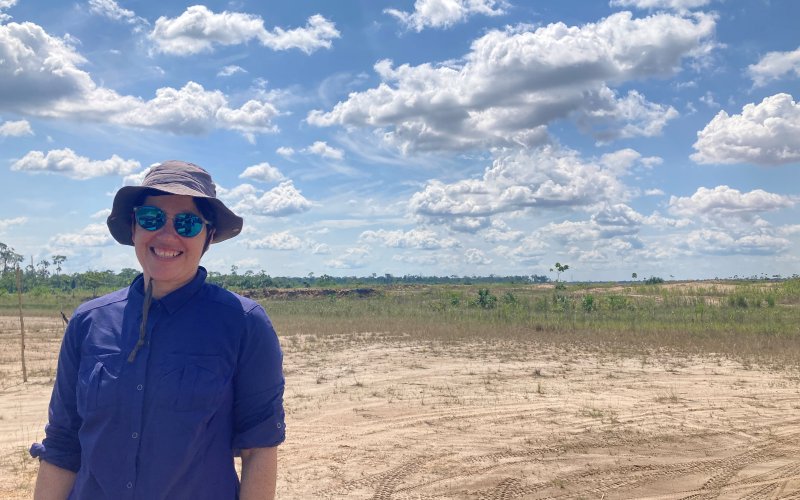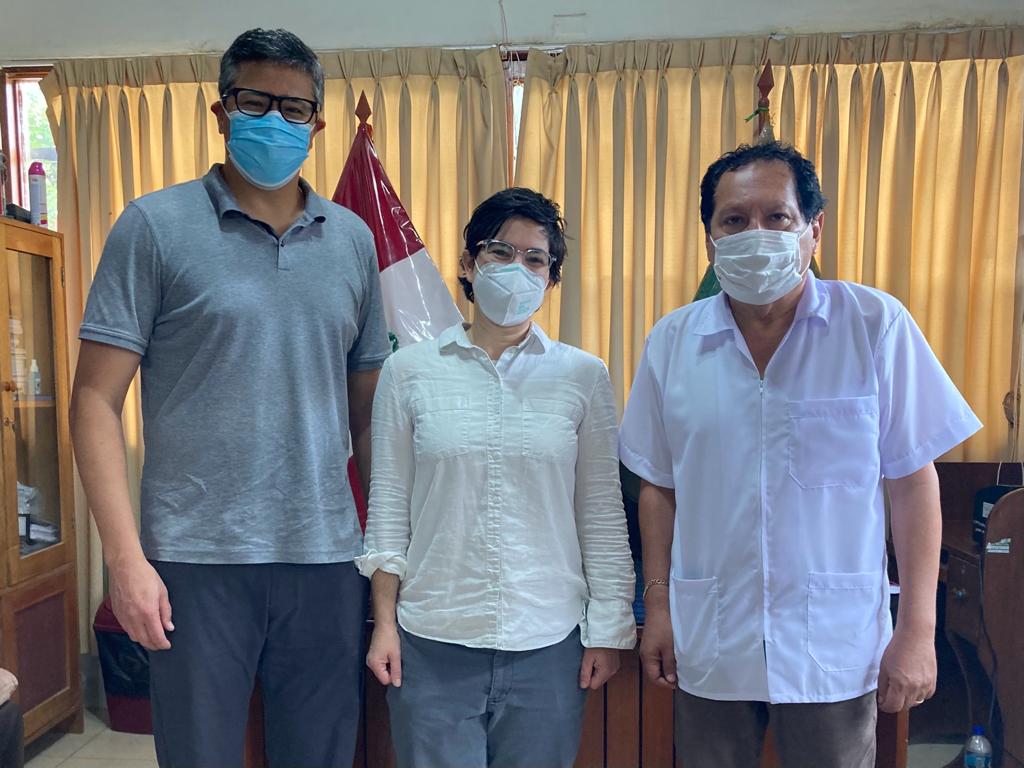School of Public Health Researcher Receives Fulbright Amazonia Award

ALBANY, N.Y. (May 23, 2023) — Beth Feingold, associate professor in the Department of Environmental Health Sciences at the School of Public Health, has been selected as one of 16 inaugural scholars to participate in Fulbright Amazonia, a new initiative to support cutting-edge research and cross-sector collaboration on Amazon Basin issues.
The Fulbright program will bring together researchers from Brazil, Bolivia, Colombia, Ecuador, Guyana, Peru, Suriname, the United States and Venezuela to collaborate on action-oriented research with the goal of securing a sustainable Amazon Basin. Working in interdisciplinary and multinational research teams, the Fulbright Amazonia Scholars will explore socially relevant research questions and participate in group seminars to recommend actionable policies that directly improve the quality of life of communities throughout the Amazon Basin.
A program of the U.S. Department of State, Fulbright Amazonia is supported in collaboration with the Fulbright Commission in Brazil and other Fulbright partners in the region.
“I’m thrilled that the importance of Dr. Feingold’s work is being recognized by this prestigious award,” said Mary Gallant, interim dean of the School of Public Health. “Her research will significantly contribute to the mission of the Fulbright Amazonia program to recommend actionable policies that positively impact the quality of life of people living throughout the Amazon region. This work is a model of the ways that UAlbany researchers are expanding the reach of their work to benefit the global community.”
Environmental Change and Human Health
Feingold leads longstanding projects investigating environmental health risks in the Peruvian Amazon. Her research addresses relationships between the food system, the environment and population health.

“My proposed Fulbright analyses build on my 12 years of environmental health research in the southern Peruvian Amazon region of Madre de Dios,” Feingold said. “The overarching goal of this research is to provide some of the first longitudinal data on effects of anthropogenic activity in the Amazon on children’s health risks.”
Feingold’s work aims to better understand the impact of mercury exposure on children’s development, and how access to the interoceanic highway has impacted the dual burden of childhood malnutrition between 2011 when it was constructed and now. “I hope that my findings will help fill important gaps in policy-relevant children’s environmental health research in Peru and across the Amazon.”
While in Peru, Feingold will be hosted by Universidad Peruana Cayetano Heredia’s CRONICAS Center of Excellence in Chronic Diseases, with whom she is also working on her NIH-funded research. “Integral to my work in Peru are the relationships I have fostered over the years with CRONICAS, the Madre de Dios Regional Health Directorate (DIRESA-Madre de Dios), and many others. I am grateful to the Fulbright Program for this opportunity to continue to strengthen these partnerships.”
Community Collaboration
The Fulbright Amazonia program will expand on existing networks and close collaboration among U.S. and Amazonian universities and research centers to promote innovative approaches that preserve Amazonian social and ecological health and community traditions. Fulbright Amazonia scholars will focus their research on three central topics: climate change adaptation and mitigation, strengthening human and environmental health and security and bioeconomy and sustainable development.
"I know that the Fulbright Amazonia scholars represent a variety of backgrounds, and I am eager to see my research through their eyes, share my unique perspective on their projects, and collaborate to address some of the most pressing problems in the region,” Feingold said. “I am honored to have been selected to participate in this inaugural Fulbright Amazonia cohort and excited meet my new colleagues next month!”
Fulbright Amazonia activities will begin in June 2023 with a meeting in Belem, Brazil, that will include Amazon stakeholders. An interim meeting will be held in Colombia halfway through the program. In December 2024, Fulbright Amazonia scholars will convene in Washington, D.C. to present their final policy recommendations.




